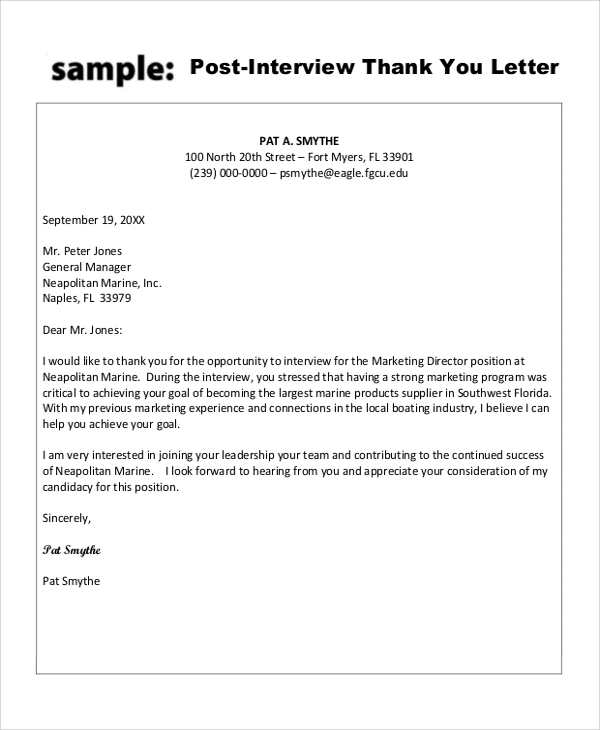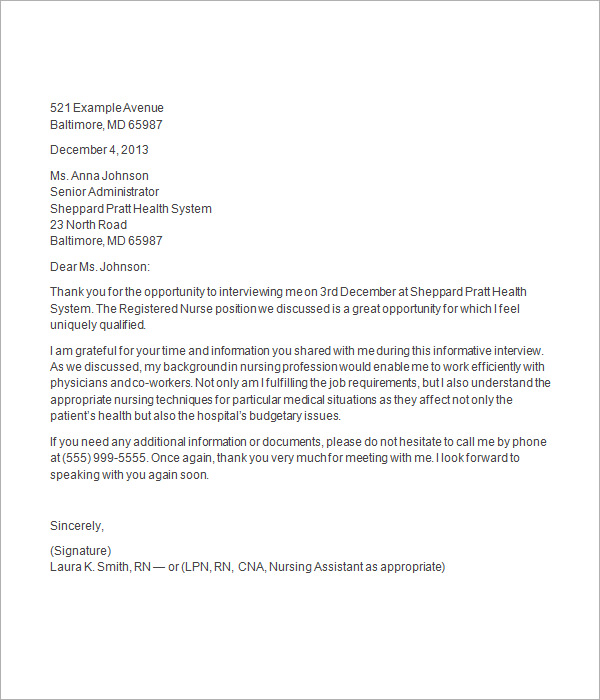
Then, sign off, including your contact information below your name. It’s a simple courtesy, but also highlights your interest in remaining in contention.įinally, say thank you again. In the third paragraph, you can also mention that you’re willing to answer any additional questions the hiring manager may have. If they mentioned next steps at the end of your phone interview, you can discuss the specifics. Once you have that covered, let the hiring manager know you look forward to what comes next. That way, you create an opportunity to continue the discussion without strong-arming it into the conversation. After all, they may have interviewed someone else right after you, so jogging their memory isn’t a bad idea.Īdditionally, your specific challenge allows you to highlight the value you can provide subtly. Not only does this show the hiring manager that you were engaged, but it also helps them remember who you are.

The purpose of this is to reference a moment from your phone interview, preferably a challenge or high-priority duty associated with the position. Now, the specific challenge paragraph may be new to you. Follow that up with gratitude, letting them know you appreciate them taking the time to speak with you. The greeting is simply a traditional opening, featuring the hiring manager’s name. Yep, that’s all you need to cover in the vast majority of cases. Looking Forward to Next Steps Paragraph.Generally, a thank you letter after a phone interview is going to have the following: That means you won’t be dealing with a whole lot of sections. As mentioned above, brevity is your friend. The structure of your follow up email after a phone interview is pretty straightforward. Details of a Thank You Email for a Phone InterviewĪlright, let’s dig into the details a bit. Be brief, adding in just a little tidbit about how you’re excited about the next step. Instead, focus on being gracious, polite, and professional. More steps are coming, so you need to hold your horses a bit. Hiring managers don’t choose a candidate for the job based on the phone interview they use it to identify the top contenders.Īs a result, you don’t want to get too pushy about hearing whether you’ve landed the job or even discussing more about your capabilities. In the vast majority of cases, a phone interview is an early screening step. Now, it’s important to note that a thank you email after a phone interview is a little bit different than what you’d send after an in-person meeting. That means not sending one is a horrible risk to take. Without a thank you email, the hiring manager might assume you aren’t as engaged in the process or didn’t find the opportunity intriguing. Hiring managers are busy professionals, so even a short phone interview can have a dramatic impact on their day.Īdditionally, you’re demonstrating your interest in moving forward in the process. You’re shining a light on the hiring manager’s efforts, letting them know that you understand that they didn’t have to take the time to speak with you. When you send a phone interview thank you email, you’re making a positive impression. After all, they took time out of their day to consider you for a position, and that’s worthy of your gratitude. Generally speaking, a thank you note is a way to demonstrate your appreciation to the hiring manager.
#THANK YOU LETTER AFTER INTERVIEW HOW TO#
So, let’s get to it, shall we? What Is a Thank You Email?Īlright, before we dig into how to write a thank you email after a phone interview, let’s talk about what one actually is. Since you’re here, you probably figure thank you emails are important, and you want to get them right. They aren’t asking for a handwritten one that requires actual postage.


Shocking, particularly since 94 percent of hiring managers think that an emailed thank you note is fine. What’s surprising is that, even though a thank you note can help a candidate land a job, only 24 percent of job seekers actually write one. Others will make hiring decisions based on the content of the thank you email. Some hiring managers will discard candidates who fail to send one. But, did you know that it can be a make or break point for you as a candidate? It’s true.


 0 kommentar(er)
0 kommentar(er)
